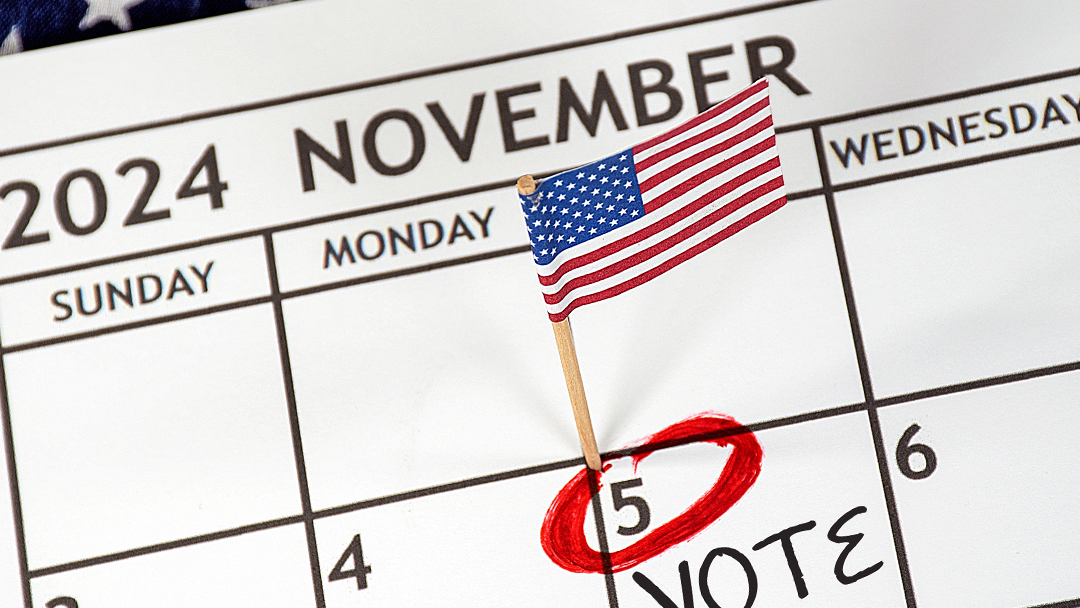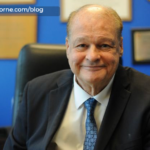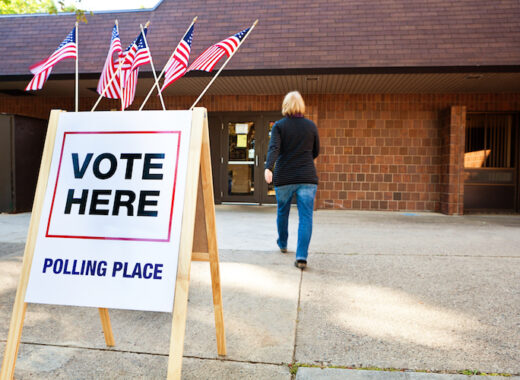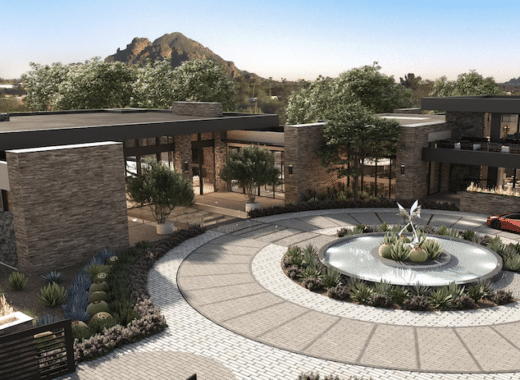Data Orbital, a leading data solutions and survey research firm, has released the findings of its latest statewide survey of likely General Election Voters in Arizona. Conducted from April 27th to 29th, the survey provides comprehensive insights into the current political landscape in the state, particularly focusing on the Presidential and US Senate races.
Arizona, historically known as a battleground state, continues to attract attention as the 2024 General Election approaches. With six months remaining until Election Day, the state’s political dynamics are closely watched, especially concerning the Presidential and US Senate contests.
Presidential Race Analysis
The survey reveals a tight race in the Presidential category. Democratic incumbent President Joe Biden leads Republican former president Donald Trump by a slim margin of 38.8% to 38.1%. Notably, independent candidate Robert F Kennedy Jr. has garnered 13.5% support, with 8.1% of voters remaining undecided.
This competitive scenario underscores Arizona’s significance as a state where every vote counts. The fluctuating support between major party candidates and the presence of a notable independent contender signal a diverse and engaged electorate.
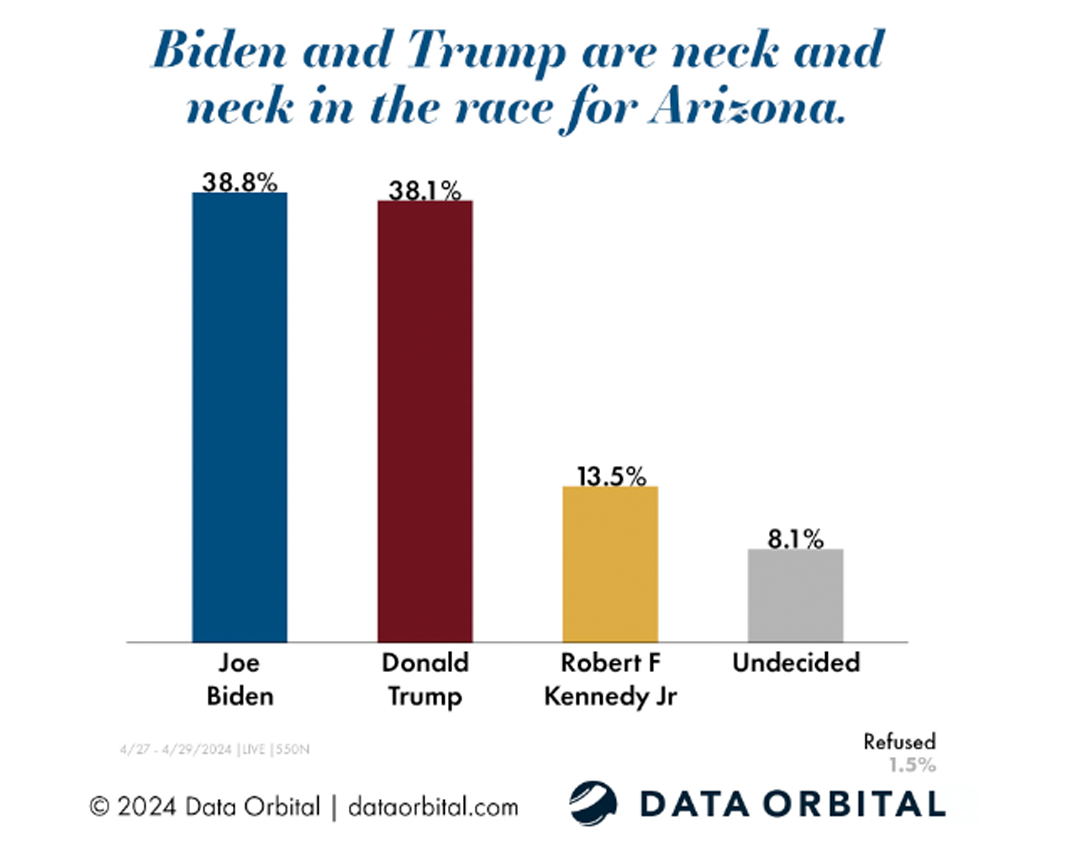
US Senate Contest Insights
In the US Senate race, the dynamics are equally compelling. The presumptive Republican nominee, Kari Lake, is trailing behind Democratic Congressman Ruben Gallego, the presumptive Democratic nominee. Gallego holds a lead of 48.1% to 43.9%, with 6.3% of voters yet to make their decision.
The Senate race in Arizona reflects national trends, where both major parties are vying for control of key seats. The closeness of this contest underscores the state’s pivotal role in shaping the balance of power in Washington.
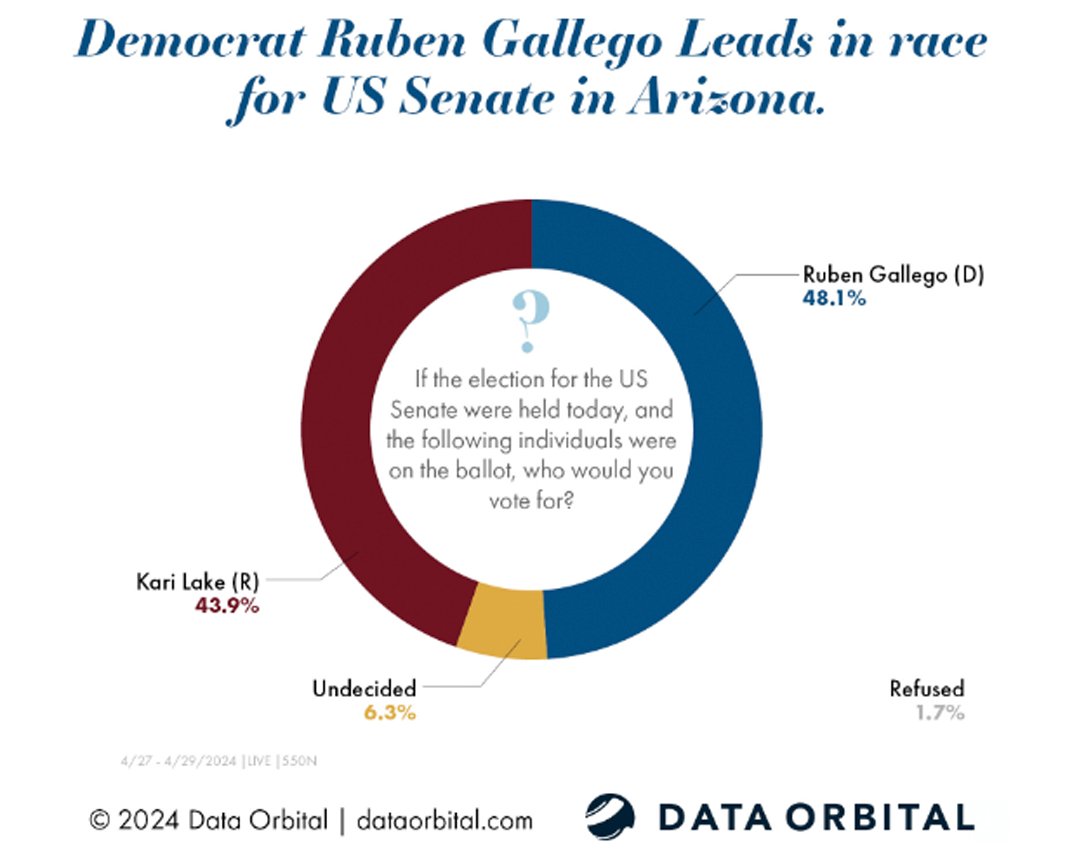
George Khalaf, a prominent pollster, offered insights into the survey results. Khalaf noted the uncertainty surrounding the upcoming elections, stating, “With Election Day 2024 approaching, the races for President and US Senate in Arizona are too close to call. The support for independent candidate Robert F Kennedy Jr. adds an element of unpredictability, and the undecided voters could significantly sway the outcomes.”
Khalaf’s analysis highlights the dynamic nature of Arizona’s political landscape, where shifts in voter preferences and unexpected factors can influence the final results.
The survey methodology employed by Data Orbital involved polling 550 likely general election voters via live phone calls. The data collection included 46.0% of results from live caller landlines and 54.0% from live caller cell phones. The margin of error was calculated at plus or minus 4.26% with a 95% confidence interval.
The meticulous approach to data collection and analysis ensures the reliability and accuracy of the survey results, providing valuable insights into voter sentiments and preferences.
As the countdown to Election Day continues, Arizona remains a focal point in national politics. The competitive nature of the Presidential and US Senate races underscores the importance of every voter’s decision. Issues ranging from healthcare and immigration to economic policies will likely influence voter choices, making candidate outreach and messaging crucial in the months ahead.
The role of independent voters and undecided individuals adds a layer of complexity to the electoral landscape, emphasizing the need for candidates to appeal to a broad spectrum of constituents.
Data Orbital’s survey offers a snapshot of Arizona’s political climate, showcasing a closely contested race in both the Presidential and US Senate categories. The coming months will witness intense campaigning, policy debates, and efforts to mobilize voters across party lines.
Arizona’s position as a battleground state highlights its significance in national politics, making it a key battleground for major parties and independent candidates alike. The final outcomes in November will reflect not only the state’s diverse electorate but also the evolving priorities and aspirations of voters in shaping the future of Arizona and the nation at large.


